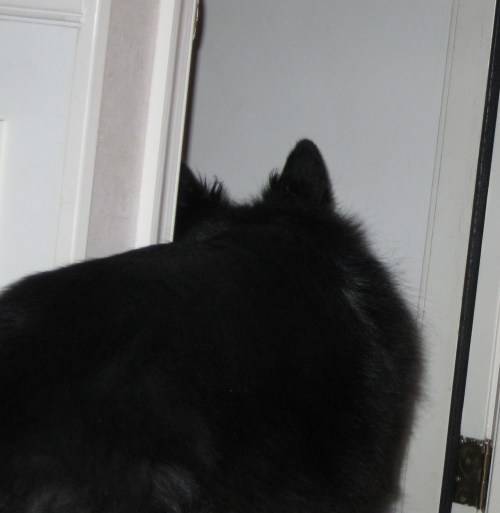
Backstory to Sleeping Beauty: two Good Fairies offer upbeat predictions for baby Aurora; then a Bad Fairy [name of Maleficent] predicts that on the girl’s 16th birthday, she’ll prick her finger with a spindle and die. A 3rd Good Fairy softens the malediction from “die” to “fall asleep.” Then they put the baby into a witness protection program [changing her name to Briar Rose]. You remember the rest.
So here’s the malediction du jour from BMC Medicine 2009, 7;46: based on a decades-long study of 16,496 kids, all born in the UK, in the same week of April, 1970. When they were 10 years old, several tests & measurements were administered. Less subjectively, their Body Mass Index [as well as that of their parents] was obtained by “a qualified nurse.” The Social Class of their parents was calculated, based on Dad’s line of work [if any]. Their teacher filled out a “modified Rutter B” questionnaire [which assessed each kid for how “worried,” “miserable,” “tearful,” and/or “fussy” they were]. Hands up, if you ever were assigned Robert Rosenthal’s 1968 educational classic, Pygmalion in the Classroom. If so, you already know how this study is going to turn out; but don’t spoil the surprise for the others.
Then these UK 10-year-olds were given 3 read-it-yourself-and-fill-in-the-answers surveys. The so-called Self-Report test had just 2 items: “I worry alot,” and “I am nervous,” to which the kid could answer “Not at all,” or “Sometimes,” or “Often/usually.” [Let’s cut to the chase on this one, and say that it predicted nowt, bupkes, nada.] Ah, but there followed the 12-item LAWSEQ [“yes,” “no,” “don’t know”] to assess Self Esteem; and the 16-item CAROLOC [“yes,” or “no/don’t know”] to assess External/Internal Locus of Control. The scoring on each test was like golf [not basketball]: lower was better. Did you ever study the “Yea-sayer Effect”? [As the name suggests, some folks Just Cain’t Say “No” on questionnaires. That’s why well-designed surveys throw in some “Yes, we have no bananas” type of questions, just to catch out the “yea-sayers.” Not these two tests, though.]
Okay, so fast-forward 20 years. Of the original cohort, less than half the 30-year-olds [mostly women] chose to contact the researchers, with their self-reported Body Mass Index. Now for the high-concept title of the article: “Childhood emotional problems and self-perceptions predict weight gain in a longitudinal regression model.” And now, for what the data actually show. “The strongest predictors of weight gain were BMI @ age 10 and parental BMI.” “[For women only] External Locus of Control and Low Self Esteem predicted weight gain on a par with Social Class.” “The Rutter B predicted increased BMI [for women].”
So–before we all start wringing our hands like the guests at Aurora’s Christening party, at the “Statistically Proven Fact” that highly-strung 10-year-old girls [or those who Just Cain’t Say No on questionnaires], whose teachers have already pigeon-holed them as Nervous Nellies, are doomed to become overweight 30-year-olds–let’s consider an unexplored bias in the data. As Rosenthal’s [much more robust] results have shown, a teacher’s subjective assessment of each student has a powerful effect–for good or evil–not only on the teacher’s predictions of that kid’s academic and social success, but on the kid’s actual success.
So, here’s my advice to concerned parents of young girls. Listen carefully at those parent-teacher conferences; and if you’re getting the vibe that the teacher has your kid in “negative halo” mode, either change the teacher’s attitude or change which teacher your kid has. I have no doubt that my father’s move-in-October Navy schedule fortuitously rescued me from some toxic negative halo situations [inasmuch as I was an Exceedingly Highly-Strung, ergo annoying, young pupil]. And twice, my parents insisted that I switch teachers, even when we weren’t blowing in or out of town.
Ya gotta be your kid’s Press Agent, and package ’em, like an Oscar nominee. Ya gotta win the Bad Fairies over, and get them to revise their own predictions of your kid’s prospects. Also, it couldn’t hurt to coach your kid to charm it up a little, no? And for those of you waiting for the Up Your Nose nexus here, say it with me: Childhood humiliation [at not being one of the teacher’s faves] leads to anger [often, directed against oneself] and to dumping cortisol, which leads to weight gain…along with other forms of pain & suffering.
But watch out for that 16th birthday, anyway. It’s a risky time for most girls.
